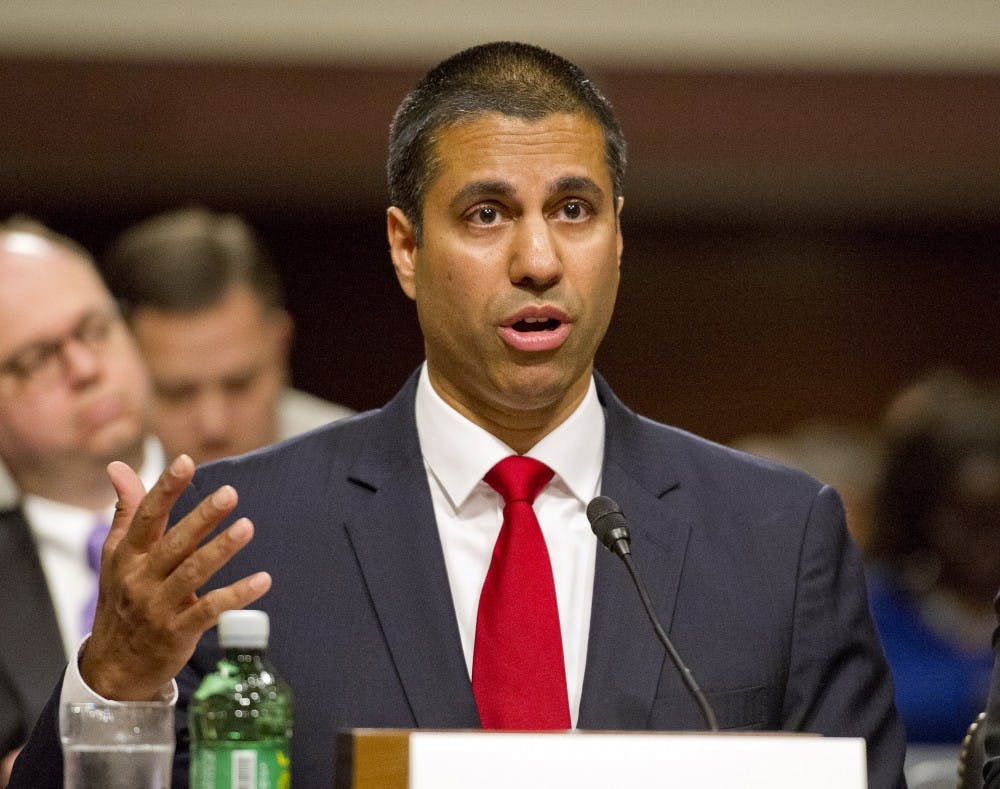BuzzFeed missed its revenue target last year by 70 million dollars. Vice missed its target by over $100 million. Since 2013, Upworthy has lost over 75 percent of its traffic. Mashable, once valued at $250 million dollars, sold for only $50 million and then had to layoff 30 percent of its staff.
All over the web, sites are closing up shop and even more are putting up paywalls, demanding subscriptions, asking for donations and blocking ad-blockers. The internet can no longer afford to be free and open. The internet is dying and net neutrality cannot save it.
The internet as we know it was built on the back of ads, and now that foundation is falling. The first banner ad in 1994 had a click-rate of 44 percent. Two decades later, I bet none of you have ever once clicked on an banner ad intentionally. Most of you reading this are probably using an ad-blocker right now. The rest of you don’t even need to, our brain has one built in, our eyes have been conditioned to completely ignore ads online.
Ads are the lifeblood of any website and they pay close to nil. Mother Jones spent 18 months and $350,000 on an in-depth dive into private prisons, the article earned over a million views and only $5,000 from ads. Digital media, in its current state, is an industry that can never be profitable. When publishers give content away for free, making money off of it is inherently difficult.
Most websites target the same demographic — 20-something millennials — and offer essentially the same product. If one site puts up a paywall, there are three more ready to take its lost traffic. And the types of ads people want are the ads that don’t work. Audiences want relevant ads without being tracked online. They want 240x180px plain text banner ads tucked away in the corners of their screen, when pop-up and auto-playing ads exist because ads only work if you notice them.
And the type of content marketers want is the type publishers hate. On Facebook, you’ve probably seen videos that are just static images, Facebook’s algorithm ranks videos higher than everything else. Why? Ads on videos are harder to skip and block. This prompted numerous sites to “pivot to video” and will very likely result in a slew of layoffs from digital media companies when the trend eventually reverses. Video is more expensive to produce and has a smaller audience than text, but it has a promise of higher ad revenue.
Marketers influence what content gets created. Proctor & Gamble has pulled its ads from YouTube over concerns over “brand safety," Unilever has threatened to do the same, it doesn't want its ads playing before a Logan Paul video. But Paul and his ilk aren’t the only ones getting hurt. Channels covering LGTBQ topics have lost ad revenue for not being family friendly. ThinkProgress, which exposes white nationalists, started asking for donations as its content has been deemed “controversial.” Political content pulls in lots of views but scares away advertisers. They get to be picky with where they place their ads, for every site that doesn’t want to play by their rules there are three more that will.
Media organizations have always relied on advertising. Publishers need to decouple themselves, but they can’t do that without you. We need to support creative professionals who pour hours into making minutes of content that gets gobbled up for free. Otherwise the internet will move towards a subscription model, and you can bet those subscriptions will be sold in bundles like cable channels. This could be the end of a free and open internet.

